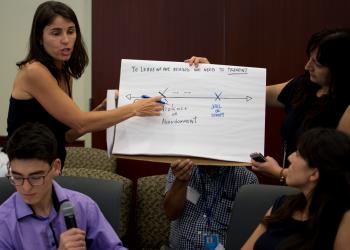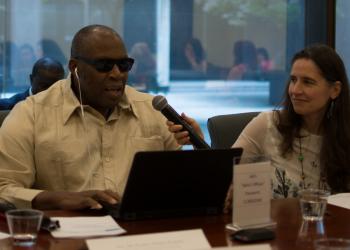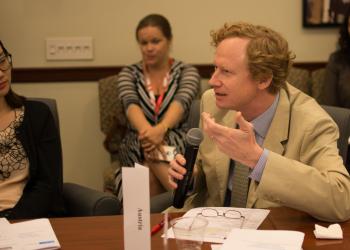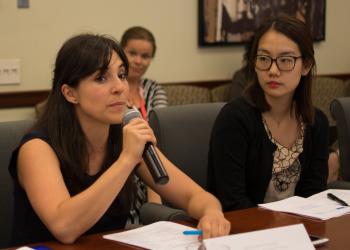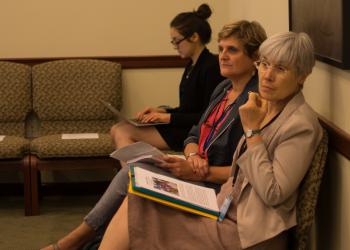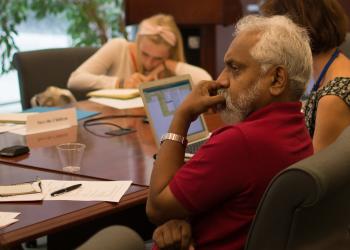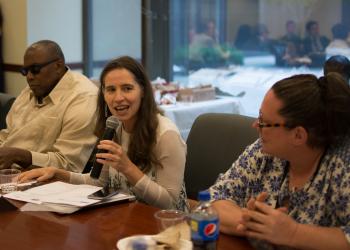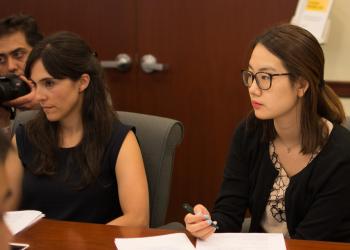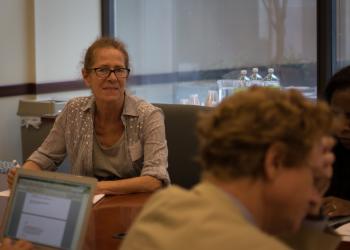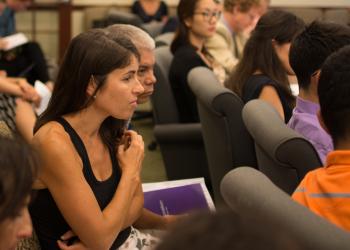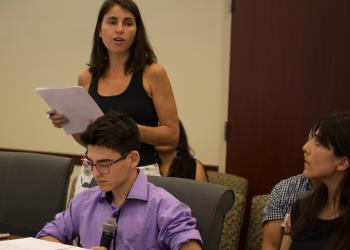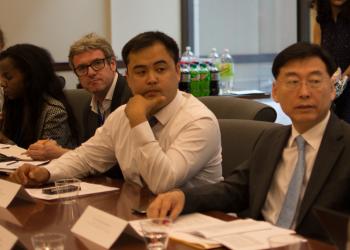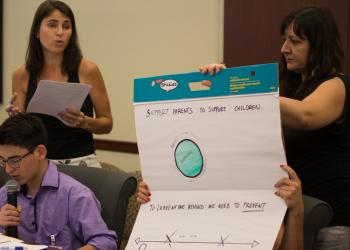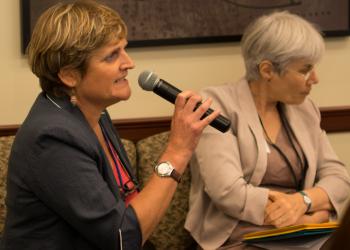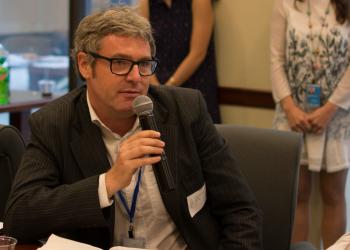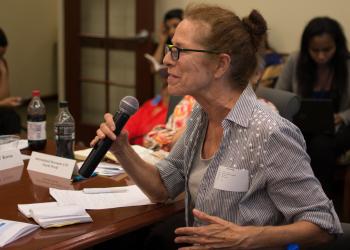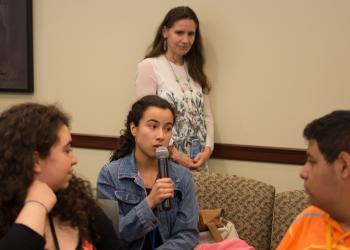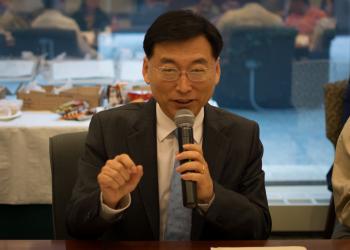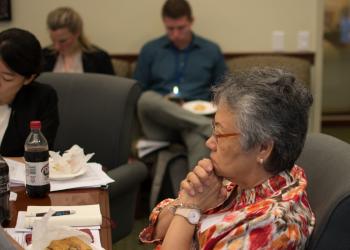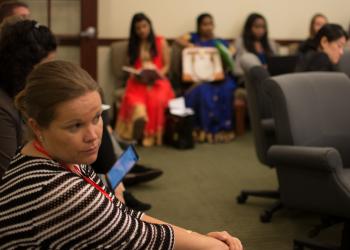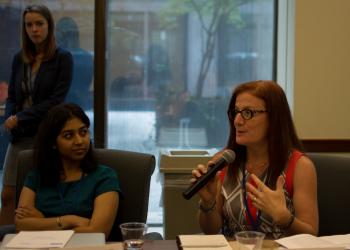HLPF lunch meeting: Leave no one behind
When we examine the most pressing goals outlined in the 2030 Agenda, inclusion is an integral component to creating meaningful dialogues. Although government and policy makers are equipped with the resources to enact change, measures cannot be properly influenced without the contributions of those individuals representing disadvantaged communities. In order to deepen understanding of these issues, a lunch meeting at the Baha’i International Community (BIC) addressed those left the furthest behind, challenging the parameters that encase those living in poverty, facing gender-based discrimination, and grappling with disabilities.
Held on 11 July and organized by the BIC, International Movement ATD Fourth World, and SOS Children’s Villages International, the event was hosted as a side event at this year’s High Level Political Forum. The meeting was noteworthy as it served as the final event in the “Leave No One Behind” dialogue series, a year-long series that hosted more than thirty member states, UN entities, and members of civil society. Participants have heard directly from children without parental care, people with disabilities, forced migrants, and informal workers. The objective of the concluding dialogue invited participants to reflect on the accrued lessons learned. Opening remarks were delivered by H.E. Mr. Walton Alfonso Webson; Permanent Mission of Antigua and Barbuda to the United Nations, Ms. Maryann Broxton, Researcher and activist; International Movement ATD Fourth World, and Mr. Franco Luman Melo, a young person with alternative care experience. Closing remarks were delivered by H.E. Mr. Hahn Choonghee; Permanent Mission of the Republic of Korea to the United Nations.
When considering those left the furthest behind, among the areas of concern, one prominent issue at the forefront is access to formal education. An underlying assumption is that all individuals have access to formal institutions, and this model of education further assumes a universal capacity for learning. Ultimately, there are people for whom certain life skills take precedent. The development of self-sufficient home-care for an individual with a disability, for example, is one example of education reform. A consensus among participants was that when advocating for those who live with disabilities, it is imperative to factor in personal dignity.
In the discourse surrounding gender equality, the role of boys and men was heavily evaluated. A robust conversation surrounded the notion that it is not enough to foster the capacities of young girls and women. It was noted that in some countries, young men are stigmatized due to mental health issues. The statistics demonstrate the extent to which, in certain societies, the solution to eradicate such stigmas is incarceration.
The importance of alternative care centers was also discussed. One point of concern was that many people remain ignorant surrounding the significance of these facilities. In order to effectively implement policy, the realities of alternative care must lead the discourse by those who have lived it, educating broad misconceptions.
Concerns regarding poverty began and ended the dialogue. The inclusion of those who have experienced poverty is vital when enacting change; it is not enough to propose solutions from a place of empathy. As we aim to develop those thoughtful policies that redefine poverty and a quality of life, authenticity must become inherent in the dimensions of change. For more information, the notes from the program can be found here.
